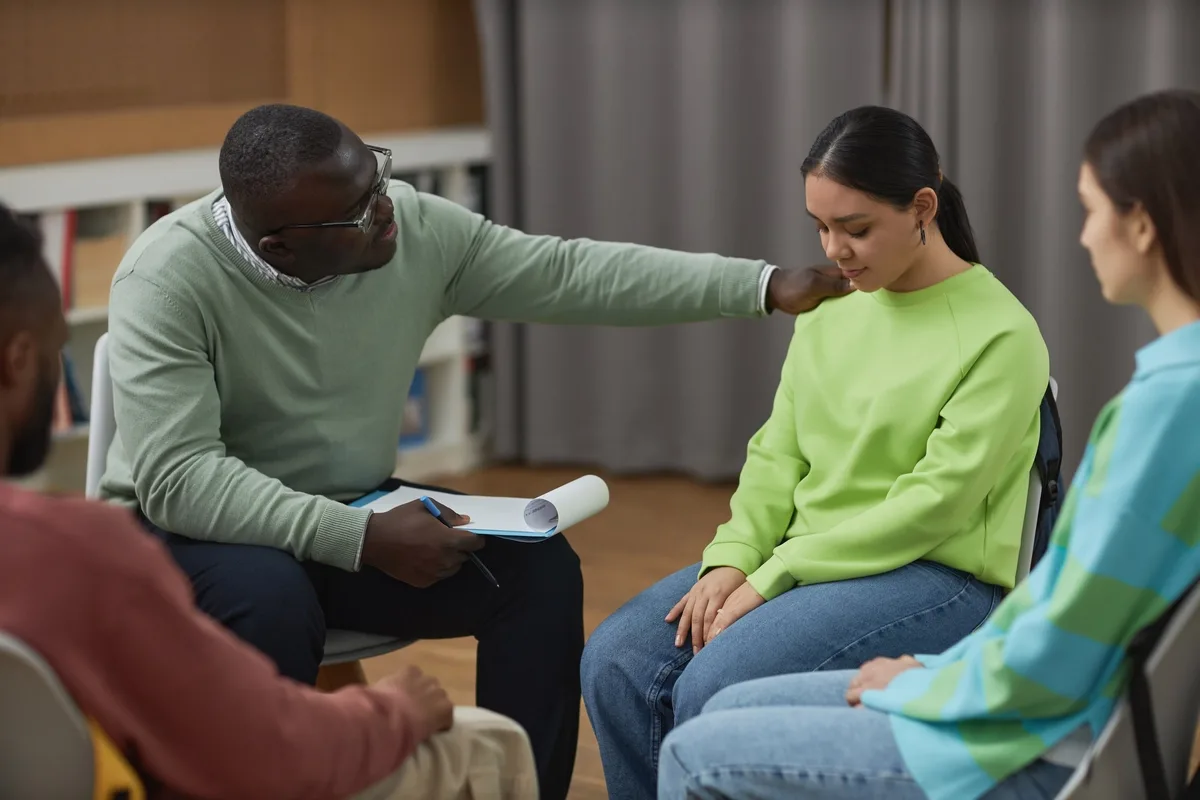24/7 Helpline:
(866) 899-221924/7 Helpline:
(866) 899-2219
Learn more about PTSD Treatment centers in Pleasant Grove
PTSD Treatment in Other Cities

Other Insurance Options

Optum

Excellus

WellCare Health Plans

Highmark

Health Partners

Meritain

Oxford

CareFirst

Self-pay options

Magellan

EmblemHealth

CareSource

Health Net

Covered California

BlueShield

American Behavioral

UnitedHealth Group

Optima

Aetna

Holman Group









Feather River Men’s Center
Feather River Men's Center is a non-profit rehab for men located in Live Oak, CA. Feather River Men'...

Sutter Yuba Behavioral Health
Sutter-Yuba Behavioral Health provides services to individuals from all ages in need of mental healt...

Therapeutic Solutions – Tharp Road
Therapeutic Solutions - Tharp Road offers intensive outpatient programs for individuals with mental ...

Teen Challenge – Twin Rivers Center
Teen Challenge–Twin Rivers is a faith based, long term residential addiction recovery center for adu...

First Steps
First Steps is a public rehab located in Yuba City, California. First Steps specializes in the treat...

Meridian – Suwannee County Counseling Center
Meridian - Suwannee County Counseling Center is a non profit rehab located in Live Oak, Florida. Mer...

Center for Behavioral Health
Center for Behavioral Health, part of Behavioral Health Group (BHG), is an accredited methadone trea...

Northpoint Idaho
Northpoint Idaho, now Restoring Hope is an addiction treatment center located in Nampa, ID for adult...

Family Counseling Services
Family Counseling Services is a private rehab located in Meridian, Idaho. Family Counseling Services...

MidValley Healthcare
MidValley Healthcare is a private rehab located in Meridian, Idaho. MidValley Healthcare specializes...

East Mississippi State Hospital – Chemical Dependency
East Mississippi State Hospital in Meridian, Mississippi, offers a behavioral health program ran by ...

Alliance Health Center – The Crossings Residential Center
Alliance Health Center–The Crossings Residential Center, in Meridian, Mississippi, offers comprehens...

Weems Community Mental Health Center – Children and Youth Services
Weems Community Mental Health Center – Children and Youth Services is a private rehab located in Mer...




































Sutter Yuba Behavioral Health – Latino Outreach Center
Sutter-Yuba Behavioral Health - Latino Outreach Center offers outpatient services to adults and chil...

Zelus Recovery
Zelus Recovery is a private rehab located in Meridian, Idaho. Zelus Recovery specializes in the trea...

Warm Springs Counseling Center – Meridian
Warm Springs Counseling Center – Meridian is a private rehab located in Meridian, Idaho. Warm Spring...

Ascent Behavioral Health
Ascent Behavioral Health offers outpatient and intensive outpatient treatment for individuals with a...

Intervention 180
Intervention 180 is a private rehab located in Meridian, Idaho. Intervention 180 specializes in the ...

Community Outreach Counseling
Community Outreach Counseling is a private rehab located in Meridian, Idaho. Community Outreach Coun...

Journey Mental Health
Journey Mental Health is a private rehab located in Meridian, Idaho. Journey Mental Health specializ...

Brick House Recovery
Brick House Recovery is a private faith-based addiction recovery facility that provides outpatient t...

Second Chance
Second Chance is a private rehab located in Meridian, Mississippi. Second Chance specializes in the ...

Weems Community Mental Health Center – Lauderdale County
Weems Community Mental Health Center - College Drive provides outpatient services for individuals wi...

Bradley A Sanders Adolescent Complex
Bradley A Sanders Adolescent Complex is a public rehab located in Meridian, Mississippi. Bradley A S...

Best of Both Worlds – Women’s Addiction Center
Best of Both Worlds – Women’s Addiction Center is a private rehab located in Meridian, Mississippi. ...











































